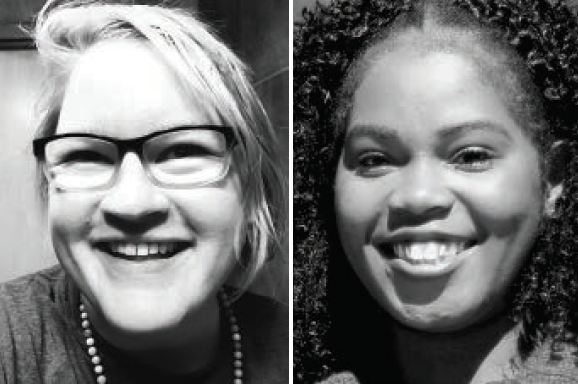SECTION: Features
AI ethics is experiencing two crises: It is disconnected from communities being impacted by AI and largely funded by and dependent on tech companies profiting from harms. Drawing on anarchist ideas, AI ethicists have recently started building tools to challenge this status quo. What else can AI ethics learn from anarchism?
By William Agnew, June 2024
PDF | HTML | In the Digital Library
SECTION: Features
Insights from the field of human factors can help us design human-centered explanations that enable effective human-robot interaction. Studying explanation techniques according to these human factors will be critical in understanding their efficacy across diverse contexts.
By Lindsay Sanneman, October 2023
PDF | HTML | In the Digital Library
SECTION: Features
How I came to love design and used AI to alleviate the most frustrating parts of the process.
By Lydia Chilton, June 2023
PDF | HTML | In the Digital Library
SECTION: Features
How analytics is transforming the future for millions of learners.
By Ryan S. Baker, April 2023
PDF | HTML | In the Digital Library
Four "who-ristic" questions to ask yourself when designing artificially intelligent educational technologies that will actually benefit people.
By Rod D. Roscoe, April 2023
PDF | HTML | In the Digital Library
This article is an example of how theoretical frameworks about how people learn science were used in combination with computational techniques to develop authentic assessments and intelligent tutoring for science.
By Janice D. Gobert, April 2023
PDF | HTML | In the Digital Library
SECTION: Features
Queer in AI is an organization that aims to combat the harms faced by queer researchers within AI. Several inclusion initiatives are outlined, including those centered on policy and financial aid.
By Hetvi Jethwani, Arjun Subramonian, William Agnew, MaryLena Bleile, Sarthak Arora, Maria Ryskina, Jeffrey Xiong, July 2022
PDF | HTML | In the Digital Library
In order for robots to become integrated into society, we need to be able to prove that robots do their jobs reliably. Robot benchmarking competitions in smart cities offer a glimpse into our future.
By Matthew Studley, Valentina Presutti, Daniele Nardi, Sarah Carter, April 2022
PDF | HTML | In the Digital Library
With the onset of the COVID-19 pandemic in the United States, "essential work" became a calling card for the labor that kept the country running. But the activity of essential workers often occurs out of sight. For example, the products of waste workers are everywhere---clean floors, sanitized tables, objects made from recycled plastics---though workers themselves are often behind the scenes.
By Franchesca Spektor, Estefania Rodriguez, Samantha Shorey, Sarah Fox, January 2022
PDF | HTML | In the Digital Library

How might computing support us in becoming our better, more emotionally resilient selves? We explore this in an interview with the team from Microsoft Research's Human Understanding and Empathy group.
By Xuhai Xu, Karan Ahuja, Jasmine Lu, Mary Czerwinski, Jina Suh, Gonzalo Ramos, September 2021
PDF | HTML | In the Digital Library
Climate change poses a major threat to society, requiring rapid action from all corners. Machine learning can be a potentially useful tool for addressing climate change, when applied in coordination with policy, engineering, and other areas of action.
By Priya Donti, December 2020
PDF | HTML | In the Digital Library
Using artificial intelligence, and an oft-ignored modality, an Indian startup develops an affordable, accessible, and non-invasive breast cancer screening solution.
By Siva Teja Kakileti, Himanshu Madhu, Thara Subramoni, Geetha Manjunath, April 2020
PDF | HTML | In the Digital Library

The ethics of artificial intelligence in Africa should come from the social contract theories and ethical frameworks developed by African philosophers. But if AI researchers fail to incorporate cultural differences, they risk perpetuating the same injustices witnessed during colonial times.
By Ezinne Nwankwo, Belona Sonna, November 2019
PDF | HTML | In the Digital Library

As Africa embraces and interacts with AI, what policies are relevant to foster its development? This article highlights some domains where AI is being applied and will be beneficial given Africa's unique context and culture.
By Micheal Nayebare, November 2019
PDF | HTML | In the Digital Library

SECTION: Features
How good are you at explaining your decisions? Are you better than a machine? Today, AI systems are being asked to explain their decisions. This article explores the challenges in solving this problem and approaches researchers are pursuing.
By Michael Hind, April 2019
PDF | HTML | In the Digital Library

Opaque algorithms get to score and choose in many areas using their own inscrutable logic. To whom are said algorithms held accountable? And what is being done to ensure explainability of these algorithms?
By Tim Miller, April 2019
PDF | HTML | In the Digital Library

What sociology and ethnography can teach us about designing the workplace technologies of tomorrow.
By Christine T. Wolf, April 2019
PDF | HTML | In the Digital Library

Advanced robotics and artificial intelligence systems present a new challenge to human identity.
By Joanna J. Bryson, April 2019
PDF | HTML | In the Digital Library

SECTION: Features
Every year, the ACM Special Interest Group on Artificial Intelligence sponsors a student essay writing contest. This article presents a clear perspective on last year's winners, which represent a diverse collection of opinions on artificial intelligence.
By Johanna Schacht, January 2019
PDF | HTML | In the Digital Library

What do architecture and AI have to do with each other? Quite a bit, it turns out, and it is a history that goes back to the origins of AI.
By Molly Wright Steenson, April 2018
PDF | HTML | In the Digital Library

With the growing popularity of streaming services, artificial intelligence-generated systems, and open art content, the music industry is facing a complex set of challenges.
By Jarno Eerola, April 2018
PDF | HTML | In the Digital Library

SECTION: Feature: Designing the workplace of the future
Skill ladders may help crowd workers to "skill up" as they work. But what other technical innovations will lead to better opportunities for crowd work?
By Jeff Bigham, Kristin Williams, December 2016
PDF | HTML | In the Digital Library

SECTION: Features
How can people and AI equally participate in creating something? How do they do it when they cannot edit or revise their work?
By Brian O'Neill, June 2013
PDF | HTML | In the Digital Library

SECTION: Features
University of Chicago's Robert Soare, the Paul Snowden Russell Distinguished Service Professor of Mathematics and Computer Science, offers his reflections on Alan Turing.
By Arefin Huq, March 2012
PDF | HTML | In the Digital Library

SECTION: Features
Can information presented below the threshold of consciousness be used to provide support to the users of interactive computer systems?
By Ryan Kelly, September 2011
PDF | HTML | In the Digital Library



























